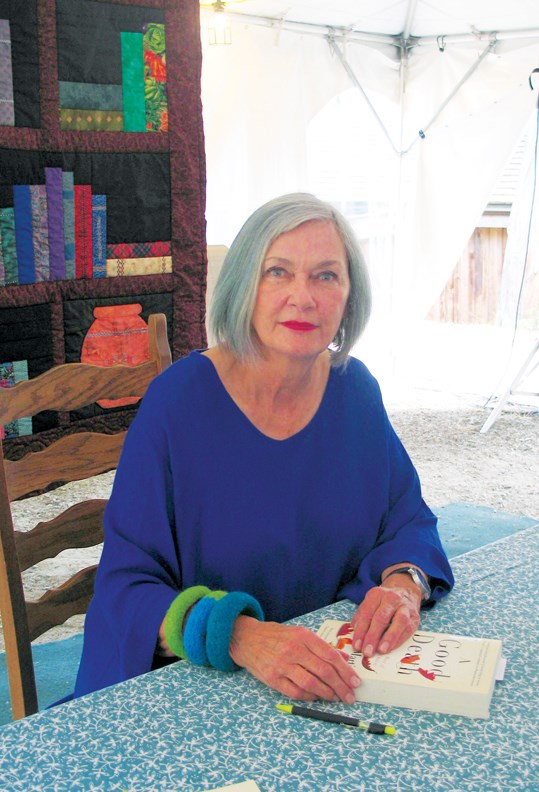Climate change and its impact on millennials, what being brown means in many cultures, doctor-assisted death and its terrible choices – these were a few of the topics that raised the level of intensity during last weekend’s Festival of the Written Arts.
Every year a number of speakers simply read from their books then answer questions. There’s nothing wrong with that, but more and more the Festival has become a forum for the exchange of ideas. More than one author was heard to say, “You’re a tough crowd,” when asked a thought-provoking question from the audience.
Geoff Dembicki spoke for the millennial generation when he asked if they could survive climate change. Scientists, he said, have speculated that by the year 2065 every coastal city would be under water. Dembicki threw out a few feelers to see if any in the Festival’s full house were Trump supporters. They were not. He admitted that he was usually preaching to the choir with most of his work, but it was in order to rile them up.
“Work now and for the next three years,” was his final message.
Associate professor Kamal Al-Solaylee has light brown skin, and he spoke to how hard it is to be brown in the world today. “The lighter you are, the better your life,” he said, and his talk was juxtaposed with images of boatloads of brown-skinned refugees and – in a new addition to his photo files – white supremacists giving Nazi salutes.
“We have known of the coming storm for some time,” he said, referring to the rise of the alt-right.
Sandra Martin, the author of A Good Death: Making the Most of Our Final Choices, was introduced by Lee Carter, one of the plaintiffs in a ground-breaking constitutional challenge for the right to doctor-assisted death. Martin said that the new law allowing assisted death is deeply flawed, and makes terminal patients face cruel choices. She cited well-known instances such as ALS sufferer Sue Rodriguez who pushed public opinion by arranging her own death. A government committee was set up to gather information on the subject across the country, but they could find no consensus. There were hard questions from the audience – when is assisted death called suicide, and could assisted death be extended to the mentally ill – but the key question was: “Is there consensus now?” Yes, said Martin, though the choices continue to be difficult.
Amid this exchange of ideas around cataclysmic events came the gentle voice of poet and author Joy Kogawa. She spoke of mercy, forgiveness and trust. “They need flesh on them,” she said. Kogawa thinks in images – her words came slowly, translated into speech from her mental pictures. Too often, broadcaster and interviewer Kathryn Gretsinger, schooled in not allowing dead air space, rushed Kogawa or cut her off on her way to an epiphany. There was utter silence in the packed pavilion when Kogawa described an experience she had with a wounded tree that she said was “old, gnarled and sad.” As she touched it, a streak of warmth went down her hand and suffused her with a knowing.
“Everything was completely known,” she said. “The knowing is all around us all the time.”



